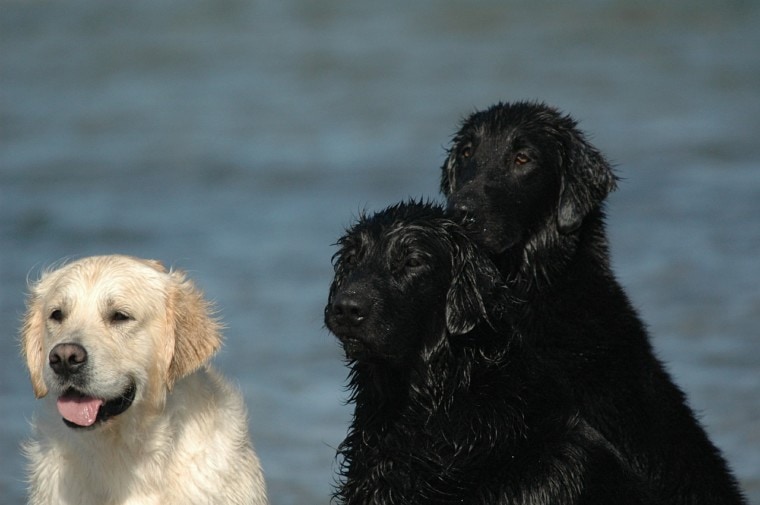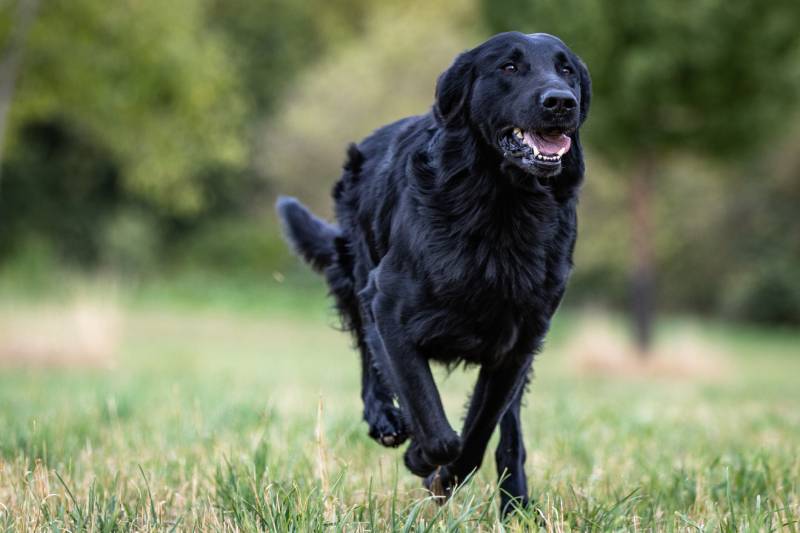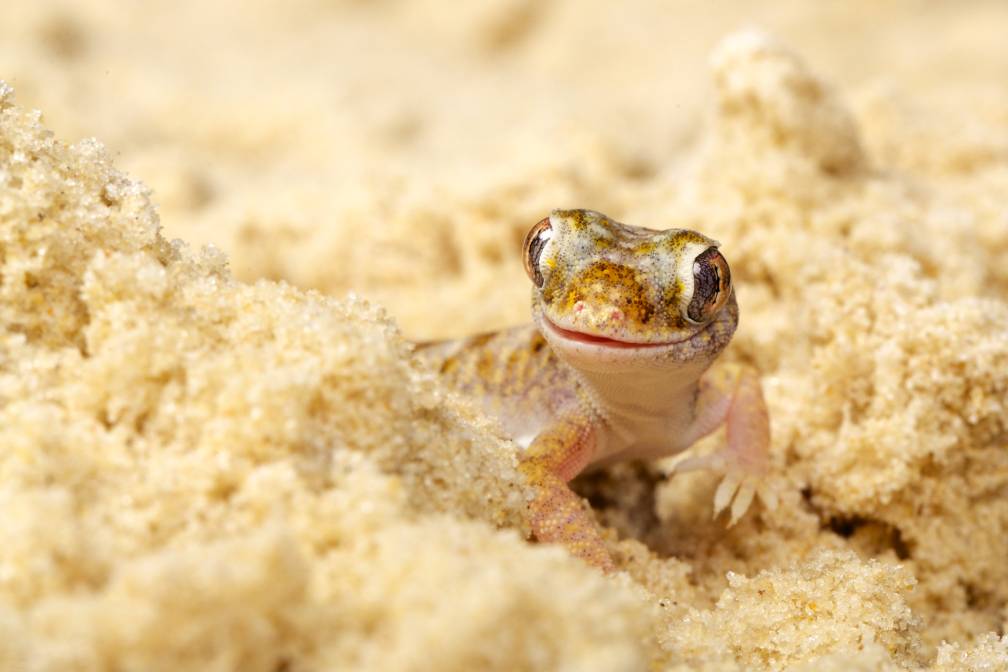
The Flat-Coated Retriever is a gundog breed from England that breeders created to retrieve on land and in water. It’s a versatile and multi-talented dog with a strong desire to please. They are popular rescue dogs in the United Kingdom due to their strong sense of smell. One of the questions we get asked most frequently is if these dogs are prone to cancer. Unfortunately, cancer is common to this breed, but keep reading while we look into how often it occurs and if it’s something that should influence your decision about purchasing this breed to help you be better informed.
Cancer In Flat-Coated Retrievers
Unfortunately, cancer is one of the leading causes of death in flat-coated retrievers as it affects more than 50% of the breed. Currently, there is no genetic testing for the types of cancer that affect the Flat-Coated Retriever, so your best option is to find a reputable breeder that allows you to look into your pet’s ancestry to see if any types of cancer are common, but also to get your dog regularly checked by the vet, as early detection is crucial.
However, there is some recent progress on this topic, and researchers are getting their heads together in hopes to find a blood test that may help to identify histiocytic sarcoma in its very beginning, which is a very aggressive cancer that flat-coated dogs are quite susceptible to.1 But even this cannot predict what illness your beloved dog may develop as they get older.
Hemangiosarcoma
Canine hemangiosarcoma is a mysterious disease that causes your pet to develop tumor cells that form blood vessels. It’s quite common and accounts for 5-7% of tumors in dogs, and it usually affects dogs older than 6 though it can occur at any time. It’s common in Flat-Coated Retrievers as well as Golden Retrievers, Burmese Mountain Dogs, German Shepherds, and many other breeds.
Melanoma
Melanoma tumors appear on the skin of many dogs, and they require immediate medical attention to find out if the tumors are malignant or benign. Benign tumors generally do not spread and usually do not present any danger to your pet other than they may be invasive to surrounding tissue and get bigger with time, so your vet may recommend surgically removing them. You usually see these as dark raised patches on the dog’s head, paws, and back. Malignant Melanoma tumors will spread, and it can cause significant health problems.
Lymphosarcoma
Lymphosarcoma is another common cancer that affects many dog breeds, including the Flat-Coated Retriever, Rottweiler, German Shepherd, Golden Retriever, and Basset Hound. As the name suggests, it affects the lymphatic system reducing your pet’s ability to fight off bacteria and viruses. Signs may include swelling in the abdomen, limbs, and jaw, and your dog may be lethargic and disoriented, losing weight, having a poor appetite, chronic vomiting, diarrhea, or enlarged lymph nodes. Unfortunately, this disease often goes undiagnosed until it’s too late, so it’s important to have your pet checked frequently.

Histiocytic Sarcoma
Histiocytic sarcoma, previously known as malignant histiocytosis, is a rare aggressive form of cancer that’s unfortunately a major concern for owners of the Flat-Coat Retriever as well as the Burmese Mountain Dog, Rottweiler, Golden Retriever, and others.2 Survival time depends on the type and can be anywhere from a few months to 1.5 years with chemo, and even expensive chemotherapy has little effect, though research into new drugs may be promising.
Mast Cell Tumors
Mast cell tumors affect the cells that reside inside connective tissue, especially those close to external surfaces like the skin. This is one of the most common skin cancers in dogs, although they can also affect other organs, such as the liver, spleen, intestines, and the bone marrow. Signs include tumors on or under the skin that can fluctuate in size. Your dog may also have an enlarged liver and experience vomiting, loss of appetite, and even diarrhea.
Adenocarcinoma
Adenocarcinoma is a kind of intestinal cancer that affects the lining of the stomach or the intestines. Signs include vomiting, weight loss, poor appetite, abdominal pain, and bloody feces, amongst others. In some cases, surgery can help prolong the life of a dog with adenocarcinoma.
Summary
As you can see, there are, unfortunately, many different types of cancers your flat-coated retriever can get. These cancers are also prevalent in many other dog breeds. The only good news is that most of these cancers take hold later in the dog’s life, so you can still have many great years with your pet. Looking into your pet’s ancestry before purchasing from a breeder, and going to regular checks at the vet in order to detect any changes early on may allow for prompt diagnosis, treatment, and management of some types of cancers before it becomes too late. A proper balanced diet, preventative health checks, and vaccinations can help boost your pet’s natural defenses.
We hope you have enjoyed a short guide and found the answers to your questions. If we have helped you be better informed, please share our look into if cancer is common in the Flat-Coated Retriever on Facebook and Twitter.
Featured Image Credit: 123090, Pixabay








